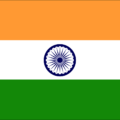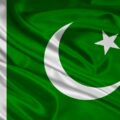What Caused the Alarming Situation in Ethiopia?
The increasing violence in Ethiopia, particularly in Western Oromia as well as in Tigray is a cause of significant risk for the civilians. As more and more people begin to organize ethnic lines and mobilize accordingly, this somewhat poses some risks. It is anticipated that episodes of violence will start to spread throughout the country. Following this Ethiopia is also approaching general elections, potentially later this year. The overall political instability combined with the uncertainty of how elections will run opens up the potentiality for a much worst situation.
Ethiopia is a huge country that consists of various political parties and many ethnic groups. Governing the people of Ethiopia has at times been very problematic for the central government in Addis Ababa. There have been a few years of economic progress and tranquility, however since 2020 things have started to intensify.
Each one has some autonomy but the center of power is in Ethiopia’s capital, Tigray, where most of the fight is happening. The government there is called the TPLF which even has its own regional army. They have a large number of militias and special forces that have been trained in hundreds of thousands.
The TPLF wasn’t just in charge of the Tigray region but ran the country for nearly 30 years even though the Tigrayans are a minority. The TPLF was the head of an alliance of regional parties but many people saw it as autocratic and dysfunctional. They locked up hundreds of journalists and political dissidents and this followed massive protests which eventually brought them down. This gave a young visionary Abiy Ahmed who was seen as an agent of change and hope to get elected. He belonged to the Oromo, Ethiopia’s largest ethnic group.
Abiy brought with him some changes, the major one of which was trying to break the coalition of political parties and unify everyone. He even extended a hand of friendship towards Etheria which was not tolerable by the TPLF. Such instances created a deep wedge between Abiy’s ambitions and TPLF. Moreover, in 2020 Abiy postponed the elections due to the Covid-19 pandemic but TPLF anyways carried out one. This is what seriously escalated things in the country. The parliament called the vote illegal and TPLF said that it didn’t recognize Abiy as a lawful leader. Following this, a series of conflicts broke out.
Human rights organizations such as the Human Rights Watch and Amnesty International have ever since then given distressing accounts of brutalities. Murders, rapes, destruction, and bombing are incidents that take place every hour in the region.
Ethiopians have a very divided view with respect to the civil war, where some support the offensive on Tigray. These supporters for instance are showing their support by donating blood to the wounded soldiers. Abiy’s supporters feel he had to act because according to them TPLF undermined him at every turn while stirring up ethnic violence. However, there are some who believe that the Ethiopian Prime Minister isn’t living up to his promise of promoting peace.



















